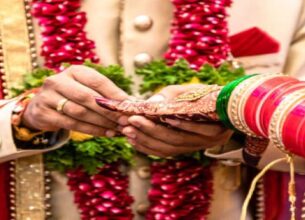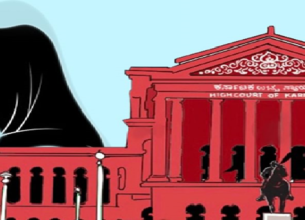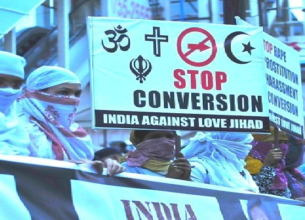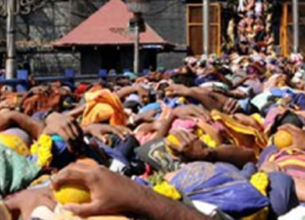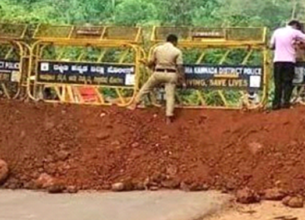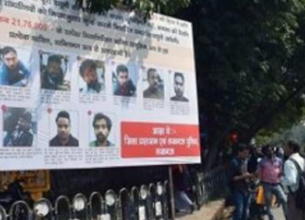Government Response Awaited on law on inter-faith Marriages
19, Jan 2022
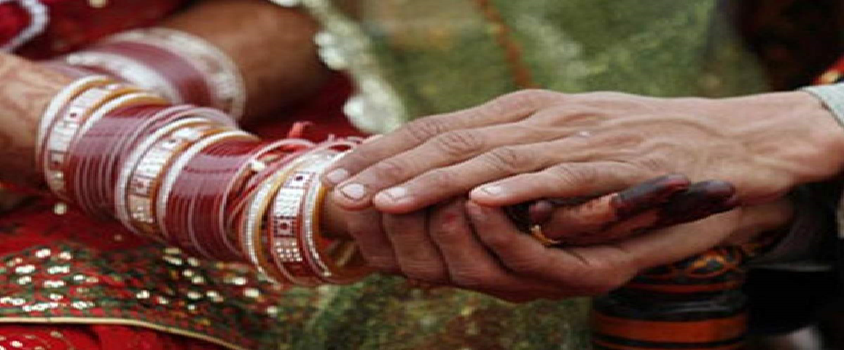
Prelims level : Policies
Mains level : GS-II Government policies and Interventions for Development in Various Sectors and Issues Arising out of their Design and Implementation
Why in News?
- The law that governs inter-faith marriages in the country, the Special Marriage Act (SMA), 1954, is being challenged for endangering the lives of young couples who seek refuge under it.
About the News:
- More than a year after a writ petition was moved before the Supreme Court, seeking striking down of several of its provisions, the government is yet to submit its response.
- The petition has sought to quash section 6 and 7 of SMA, which mandates publication of the public notice, on the ground that it is unreasonable and arbitrary.
- The petitioner argues that the 30-day period offers an opportunity to kin of the couple to Discourage an inter-caste or Inter-Religion Marriage.
What are Interfaith Marriages?
- The matrimonial relationship developed between two individuals having different religious faiths. Although marrying into a different religion is a matter of choice of an adult, there are certain issues Regarding the same.
Issues with Interfaith Marriages:
- Interfaith marriages are believed to be a forced conversion of one of the spouses (mostly women).
- As per the Muslim Personal law, in order to get married to a non-Muslim, conversion of religion is the only way.
- Hindu religion allows only monogamy and those who want to marry second time take another course.
- There is no provision regarding caste determination of children born out of such marriages.
- The Special Marriage Act, 1954 is not compatible with backwardness of the society.
- There is debate over the validity of Article 226 in context of annulling the interfaith marriage by High Court.
About the Special Marriage Act:
- The Special Marriage Act is a special law enacted to provide for a unique form of marriage by registration wherein the parties to the marriage do not have to renounce their religion.
- This Act includes Hindus, Muslims, Christians, Sikhs, Jains, and Buddhists marriages.
- This act applies to all Indian states, except Jammu & Kashmir.
- This Act applies not only to Indian citizens who belong to different castes and religions but also to Indian nationals who live abroad.
Requirements for the Special Marriage:
- The Fundamental Requirement under this Act for a valid marriage is the consent of both parties to the Marriage.
- If both parties to the marriage are willing to marry each other, that’s enough; caste, religion, race, etc. is not a Restriction.
Conditions for Marriage:
- The bridegroom must be at least 21, and at the time of the marriage, the bride must be at least 18 years of age. This is the minimum age limit respectively for a boy/girl to marry.
- At the time of their Marriage, both parties must be monogamous; i.e., they must be unmarried and at that time should not have any living spouse.
- In order to be able to decide for themselves, the parties should be mentally fit, i.e., they must be sane at the time of Marriage.
Challenges with Contemplating Laws for Interfaith Marriage:
- Contemplating laws to regulate matrimonial relationships between two consenting adults would not be just against the constitutional guarantees but would offend the very notion of individuality and basic freedoms.
- Interference of the law in an individual’s choice of marriage violates the existing constitutional rights such as the Right to equality, Right to Freedom & Personal Liberty, Freedom of Religion and Right to Life.
- Article 21: It declares that no person shall be deprived of his life or personal liberty except according to the procedure established by law. This right is available to both Citizens and Non-Citizens.
- Article 25 of the Indian constitution provides the freedom to practice any religion of one’s choice and Personal Laws of the religions have specified various laws relating to marriage for the followers of that religion. Hence, in India inter-faith marriages are allowed as the constitution allows one to convert to a different religion from what one was born with and further the personal laws of the religion have provisions.
Way Forward:
- In order to avoid inclusion of any further laws, there should be acceptance of the special marriage act, 1954 at the mental and social level.
- The rights should not be exploited; conversion of religion for marriage only is not at all wise.
- The marriage of two adults is a complete matter of their own choice, neither a law is to impose any decision, nor any individual. The Freedom of decision of his/ her marriage shall lie with the person only. The Need is to Accept the fact.



